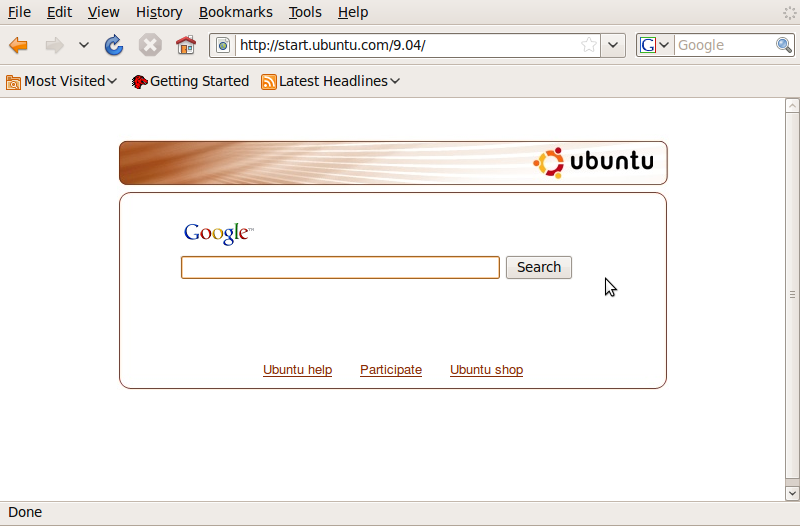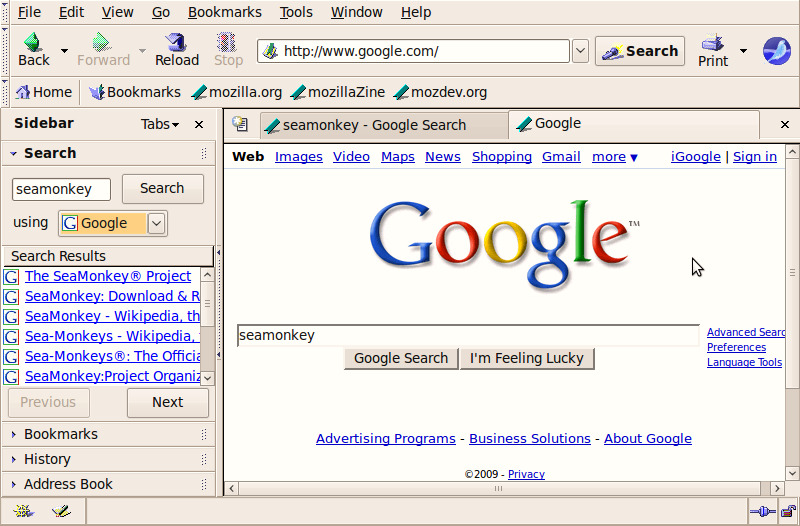Tom's Definitive Linux Software Roundup: Internet Apps
Web Browsers: The Best
The Web browser is essential, and to a growing number of users even more important than the operating system itself. As more tasks commonly associated with locally-installed applications are being accomplished using online services, the Web browser will only become more critical in the future. If Firefox seems like the de facto browser for Linux, that's because it is. However, Windows users will remember late last year when Internet Explorer security holes drove them en masse to Firefox, only to later discover similar exploits in Firefox. This incident drove home the need to have multiple browsers installed, if only for emergency backup use.
To put these browsers through a quick (and admittedly unscientific) test, I utilized some of the Internet's most popular Web sites. For starters, I performed a few random searches on Google to gauge page-load speed. Next, I simply navigated to the Yahoo homepage. Believe it or not, that site doesn't support very many browsers. I navigated to my house using the maps at Microsoft's new Bing.com (why not test in unfriendly territory?). And finally, I played the current feature video on Hulu, and the same on YouTube.
Mozilla Firefox (v. 3.0.11)
Mozilla's Firefox is the undisputed king of Web browsers on the Linux platform. No matter what any given distribution has installed by default, the vast majority of Linux users rely on Firefox as their primary window into the World Wide Web. It's popularity is due in large part to the unparalleled number of custom add-ons and plug-ins available. If a feature exists on any browser, there's probably an add-on to enable it in Firefox.
This browser is more stable and secure than Internet Explorer, while still performing similarly on Web site compatibility. With all this going for it, it's no wonder that Firefox holds almost one quarter of the entire Web browser market share. That means about twenty percent of current Windows users prefer it. If you don't already use this browser, regardless of your OS, you should.
Opera (v. 9.64)
For many years, Opera has been the third wheel at the browser party. Today, it's more like the fifth. Opera has had a long history of innovation, often including cutting-edge features before the competition. By including a thumbnailed bookmarks page, thumbnailed tab previews, and split-screen browsing (not as optional add-ons, but integrated into the default installation), the latest version of Opera is still ahead of it's time.
Get Tom's Hardware's best news and in-depth reviews, straight to your inbox.
One of the simple features that I especially like is the ability to have a separate entry in the search bar for each tab. For example, if you search for "fried chicken recipes" in one tab, and open a second tab to search for "cornbread recipes," the search bar in the second tab will not have "fried chicken recipes," but will be blank for a new search. If nothing else, Opera is a solid backup or secondary browser and is available for just about every operating system you can think of. BeOS stalwarts rejoice!
SeaMonkey (v. 1.1.15)
The first thing that you're sure to notice about SeaMonkey Navigator is the Netscape Navigator theme. Of all the browsers in this article, SeaMonkey was the biggest surprise. It is hands-down the best non-mainstream offering on the list, no question. This browser had no problem handling YouTube, Hulu, Yahoo, or even Microsoft Bing Maps. Apart from the theme, being an actual descendant of Netscape makes SeaMonkey very approachable to ex-users of Navigator. When you perform a search using the search bar, a pane appears on the left side of the screen displaying search results. This feature can come in handy if you have the screen real estate to spare on a wide-screen monitor. I really did not expect to find anything decent besides Firefox and Opera, but SeaMonkey is truly a great app; something that will remain installed on my machine long after this article is finished.
Current page: Web Browsers: The Best
Prev Page Standards, Methodology, And Legend Next Page Web Browsers: The Rest-
tacoslave my web machine runs on linux and i find the experience to be quite satisfying but i still game on windows.Reply -
C 64 tacoslavemy web machine runs on linux and i find the experience to be quite satisfying but i still game on windows.I run Linux on my old notebook and the experience is more than just satisfying. In fact most of the office work I do on that notebook is now done in linux an Win are used only to play. If linux only got some more games...Reply -
charlesxuma allow me to say this in a simple minded manner ...Reply
for the dumb there is OS X
for the weak there is windows
for the rest there is LINUX
If u find my statement offensive, then DO something about it dont just sit there winning about it. (LEARN) Remember we were all DUMB ONCE.
p.s : GAMERS NOT INCLUDED :) -
Hellbound CharlesXumaallow me to say this in a simple minded manner ... for the dumb there is OS Xfor the weak there is windows for the rest there is LINUXIf u find my statement offensive, then DO something about it dont just sit there winning about it. (LEARN) Remember we were all DUMB ONCE.p.s : GAMERS NOT INCLUDEDReply
ding fries are done....
-
For FTP you can also simply use nautilus, the file manager. Just click file->connect to server (or in the menu bar places->connect to server)Reply
-
cybrcatter CharlesXuma:Reply
You truly covered all of you bases in that post.
I was hoping that with the recession, perhaps companies who were really trying to make more efficient use of their capital would start to look at Linux as a tempting prospect.
I wounder if there are any intriguing statistics about this. -
mitch074 I'm a Linux user. I'm not a big gamer.Reply
Still, that Nexuiz thingie gives my RadeonHD 4850 a workout. Chromium B.S.U. might be old but it's nice looking and addictive. And TORCS is not for the faint of heart. And...
Well, if you go and dig into the results of 'linux games' in Google, you can find nice stuff. -
cryogenic ReplyIn order to test drive the feature sets of these applications, and to determine 64-bit friendliness, I used a native (non-VM) and fully-updated installation of 64-bit Ubuntu 9.04. When an application was not available for the 64-bit architecture, I used the 32-bit VM installation of Ubuntu. If that failed I would use Kubuntu, then Fedora, and then openSUSE
Fail!
You had to use ~5 different versions of Linux to install your apps?
-
charlesxuma u actually can run most of your games through wine, however if ur a hardcore gamer that installs and plays many (as in 20+) new games, wine still needs development for these kinds of users, your better off having windows os on the side, for that task in particular.Reply
There is an exception, but it will cost you a monthly fee, that hooks wine on to a software that updates installation and compatibility on a regular basis.(for the ones who can't configure wine themselves.)



















